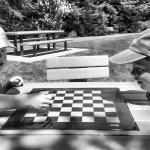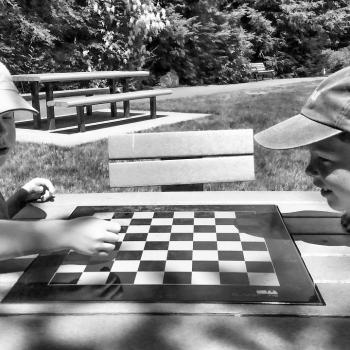The State of the Nation
Can you read this article? Can your child? If you answered “yes” to either of these questions, you are among a group of Americans that is in decline. In fact, according to the U.S. Department of Education and the National Institute of Literacy, 21% of adults in the United States read below the 5th grade level. That same report states that 19% of high school graduates can’t read. Indeed, the current literacy rate in the U.S. is at its lowest level since the year 1880.
This is a problem that is actually twofold: first, the ability to read is of tremendous value in life. Second, being well-read is of even greater value. Unfortunately, both appear to be in decline.

What’s Going On?
Since the 1970’s, the nation’s literacy rate has been in decline. Despite government intervention programs, despite mandatory school attendance, despite better technology and educators with advanced degrees, the nation’s literacy rate is dropping. Along with it, we see a decline in a “well-read” citizenry. Both are necessary to attain critical thinking skills, wisdom, and knowledge – and both are lacking in our culture today.
What’s the difference between being able to read and being well-read?
First, being able to read (using your eyes) means that you have the ability to decipher the code of our language. It requires that we understand that certain symbols are called letters, and when paired with other letters they form words, and those words are carefully positioned one next to another to form sentences, paragraphs, essays, stories, poems, and more.
Reading also involves knowing that the symbols have sounds associated with them. In fact, some of the letters even have multiple sounds associated with them. Reading specialists will use terms such as phonemes, phonograms, and phonological processing to explain the process of reading. In short, being able to read means that one can decipher the symbols, recognize the words they form, and above all, understand their meaning.
Being Well-Read
Being well-read, however, is different. It is also, arguably, more important. Being well-read means that one has been immersed in an abundance of quality literature. Interestingly, being well-read does not require that you read with your eyes. Many dyslexics and blind individuals are extremely well-read, although the number of books they have read with their eyes may be few or even none. However, by listening to audio recordings (or through Braille), these individuals have a wealth of knowledge, vocabulary, ideas, and wisdom acquired through audio-reading of a vast quantity of quality works.
Why is being well-read so important?
Study after study indicates that well-read individuals have a broader vocabulary, they have better writing skills, they have increased knowledge about a wide variety of topics, their critical thinking skills are more advanced, their understanding of different cultures and different historical events is more thorough, their attention spans are longer, and their ability to think through situations and possible outcomes is improved.
Our Children Deserve This!
Our children deserve to attain these qualities! Fortunately, “the National Commission on Adult Literacy concludes that while the nation’s situation is of grave urgency, we have the power to reverse it” (Reach Higher America: Overcoming Crisis in the U.S. Workforce, 2006-2008).
This statement is true – the situation can be improved. And yet, parents, it is up to us to help our children. As parents, we cannot expect our schools or our government to form our children into well-read individuals. No, that responsibility falls onto our shoulders.
The benefit of this, however, is that it is not burdensome – it can actually be fun!
The Joys and Benefits of Reading as a Family
Reading aloud together as a family (or listening to audio books together) builds family relationships, can be highly entertaining, and gains many benefits (as noted earlier) for the children and parents!
How can parents help their children become well-read?
- Read aloud to your kids – or listen to audio books. Spend 30 minutes each day reading a book out loud to your kids (or listening to an audio recording). This can be done in the family room or in the car. Also, this should continue well into the teen years!
- Provide quality literature at home for kids to read and/or listen to. Through the public library, YouTube, Learning Ally, Bookshare, and other sources, quality literature is readily available, and typically free of charge.
- Require “downtime” each day during the summer when kids can read or listen to audio books.
- Limit screen time! However, it is not enough for parents to instruct the kids to turn off the screens. Parents must also engage with their children. Go for a walk together, play a board game or a card game, read aloud, have a conversation. Set a limit on the screen time for your kids (and yourself) and be intentional about spending time together enjoying some fun activities!
- Finally, model the behavior you desire for your children. For example, make sure your children see you reading or listening to audio books. Also, be certain that you keep your phones off or away from you during meal times and other family times. If we want our children to have self-control when it comes to the use of social media and electronic gaming, if we want our children to be hard working, respectful, and well-read, then we must model this behavior for them.
This Summer – Start Becoming a Well-Read Family!
This summer – start enjoying quality literature together as a family. Turn off the screens and turn on the audio recording! Our nation needs a well-read citizenry. As parents, we can help to develop one!
Where Do I Find Recommended Books?
Wondering what books to read? Look here for great books as well as wonderful spiritual reading for all ages.
Also review the following books for additional lists:
The Well Trained Mind: A Guide to Classical Education at Home by: Susan Wise Bauer and Jessie Wise
Honey for the Child’s Heart by Gladys Hunt
Books Children Love by Elizabeth Wilson
Need Help With a Struggling Reader? Consider Bright Solutions for Dyslexia













